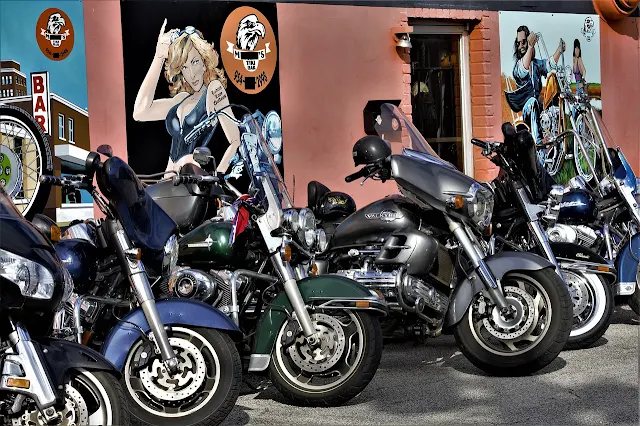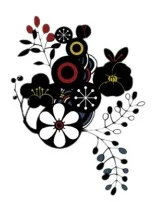
Bōsōzoku is a term used to describe motorcycle gangs in Japan known for their reckless driving, noisy motorcycles, and disruptive behavior on the roads.
These groups pose a significant risk to public safety and often cause a disturbance to others.
This article will delve into the history, classification, and impact of Bōsōzoku gangs in Japanese society.
{tocify} $title={Table of Contents}
History of Bōsōzoku
Bōsōzoku first gained prominence in the 1970s and 1980s, becoming a significant social issue in Japan.
The gangs were composed mainly of young men who engaged in illegal activities such as modifying their motorcycles to produce loud exhaust noises and intimidating other road users.
The Bōsōzoku gangs were often associated with a distinct fashion style and rebellious attitude, symbolizing defiance against societal norms.
Over time, the popularity of Bōsōzoku declined, and the gangs faced increased scrutiny and crackdowns by law enforcement.
However, despite these efforts, Bōsōzoku groups still exist today, albeit in smaller numbers and with different dynamics.
Classification of Bōsōzoku
Bōsōzoku gangs can be classified into two major types:
- "共同危険型" (Kyōdō Kiken-gata)
- "違法競走型" (Ihō Kyōsō-gata)
Kyōdō Kiken-gata (共同危険型)
The Kyōdō Kiken-gata Bōsōzoku gangs are known for their disruptive behavior on the roads.
They deliberately create noise pollution by removing their motorcycles' mufflers or using modified exhaust systems to produce ear-splitting engine noises.
These gangs often ride in large groups, obstructing traffic and engaging in dangerous maneuvers such as weaving through traffic at low speeds.
The Kyōdō Kiken-gata Bōsōzoku gangs have a reputation for violence, engaging in territorial disputes and even resorting to direct physical assaults or extortion.
Ihō Kyōsō-gata (違法競走型)
The Ihō Kyōsō-gata Bōsōzoku gangs focus on illegal racing and high-speed competitions.
They can be found racing on mountain passes, public roads, or even highways.
These groups modify their motorcycles extensively, replacing stock parts with aftermarket components to enhance performance and produce a distinct sound.
The Ihō Kyōsō-gata Bōsōzoku gangs often organize unauthorized events where they race against each other, attracting spectators who share their passion for speed and adrenaline-fueled excitement.
Impact on Society
The activities of Bōsōzoku gangs have significant implications for Japanese society.
Their disruptive behavior on the roads poses a danger to themselves and others, leading to an increased risk of accidents and injuries.
The constant noise pollution generated by their motorcycles also causes distress to residents living in the areas frequented by these gangs.
Law enforcement agencies have taken steps to address the issue by implementing stricter regulations and cracking down on Bōsōzoku activities.
Offenders can face penalties such as imprisonment, fines, the suspension of their driver's licenses, and even disqualification from driving for an extended period.
While the number of Bōsōzoku gangs has decreased over the years, there is still a concern that the influence of these groups may extend beyond their direct activities.
Younger individuals may be attracted to the rebellious nature of Bōsōzoku culture, potentially leading to an increase in illegal racing or other dangerous behaviors on the roads.
Measures Against Bōsōzoku
To combat the activities of Bōsōzoku gangs, Japanese law enforcement agencies have implemented various measures.
These include increased surveillance and patrols in areas known for Bōsōzoku activities, stricter enforcement of traffic regulations, and the establishment of special task forces dedicated to tackling the issue.
Additionally, authorities have worked to raise awareness about the dangers associated with Bōsōzoku and promote road safety education programs among young people.
The government has also taken steps to address the root causes of Bōsōzoku gang formation.
Programs aimed at providing alternative activities and support for at-risk youth have been implemented to divert their attention away from joining such groups.
Efforts are being made to create more opportunities for positive engagement and personal development, reducing the appeal of Bōsōzoku culture.
Bōsōzoku gangs have left a lasting impact on Japanese society, with their rebellious and disruptive behavior on the roads.
While their popularity has waned over time, the influence of Bōsōzoku culture still persists.
Law enforcement agencies and the government continue their efforts to combat the activities of these gangs, promote road safety, and provide alternative paths for young people who may be susceptible to joining Bōsōzoku groups.
By addressing the root causes and raising awareness, Japan aims to create a safer and more responsible road culture for its citizens.
Disclaimer: The information presented in this article is based on publicly available sources and does not condone or promote any illegal activities or behaviors associated with Bōsōzoku gangs.{alertWarning}

Your Gateway to Japan's Wonders! Immerse yourself in the beauty, culture, and adventures that Japan has to offer.
Check It Out!
Post a Comment